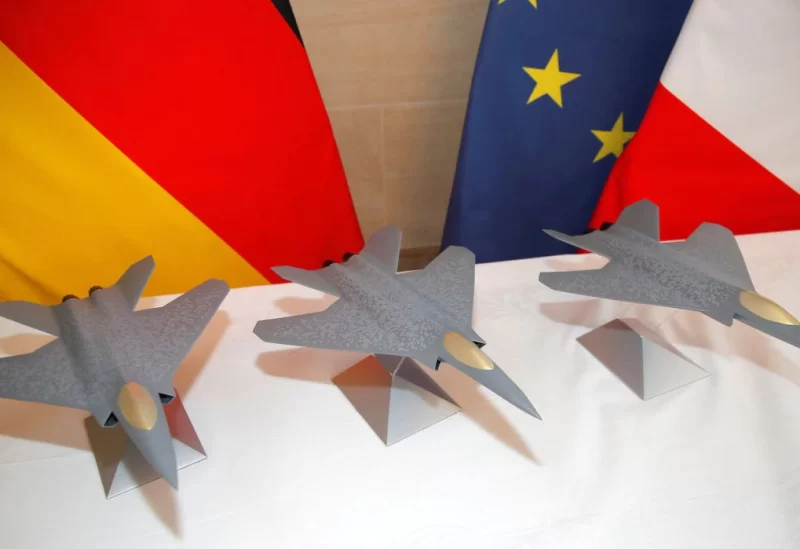
Scale models of the Franco-German-Spanish Future Combat Air System (FCAS / SCAF), Europe's next-generation fighter jet, are seen in Paris, France, February 20, 2020. REUTERS
Berlin announced on Friday that France, Germany, and Spain had secured an agreement to begin the next stage of the construction of a new fighter plane known as FCAS, the largest defense project in Europe with an estimated cost of more than 100 billion euros ($103.4 billion).
After lengthy negotiations, an industrial agreement was reached, according to a statement from Germany’s Defense Ministry, confirming a report from Reuters that the three nations’ respective industries had reached an agreement.
The ministry said it was agreed at the highest government level that a cooperative approach on an equal footing would be pursued in the project, which is under overall French responsibility.
“The political agreement on FCAS is a great step and – especially in these times – an important sign of the excellent Franco-German-Spanish cooperation,” German Defence Minister Christine Lambrecht said.
“It strengthens Europe’s military capabilities and secures important know-how not only for our, but also for the European industry.”
Previously, sources had said that the next development phase for the Future Combat Air System (FCAS) is expected to cost some 3.5 billion euros, to be shared equally by the three countries.
France’s Dassault, Airbus and Indra – the latter two representing Germany and Spain, respectively – are involved in the scheme to start replacing French Rafale and German and Spanish Eurofighters from 2040.
The first designs for FCAS, which will comprise a fighter plane and a variety of ancillary weapons, including drones, were first revealed in July 2017 by then-French President Emmanuel Macron and former German Chancellor Angela Merkel.
The project, which was initially intended to bring Europe together following the migration crisis and Britain’s decision to exit the EU, has recently become a cause of contention between the two nations.
A combined ministerial conference between France and Germany was postponed by Macron last month due to differences with Berlin over a number of areas, including energy and defense programs.
Despite the French and German governments’ general agreement on the project, both sides have been unable to come to terms on the next phase of FCAS’s development for more than a year.
According to some sources, Dassault was to fault for the situation.
Some sources saw the blame lying with Dassault, as the company had refused to budge in a long-running row over intellectual property rights. Other sources blamed Airbus for pushing for a bigger workshare of the Dassault-led project, insisting it should be given “equal footing” with the French company.